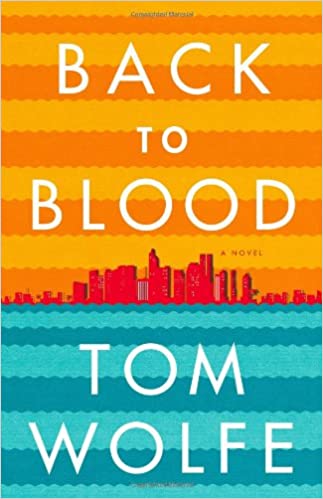The welcome news comes that Karen De Coster is publishing a book.
A mutual friend, author Rob Stove, has offered Karen some advice and posted it on her heavily trafficked Facebook Wall.
I counseled differently:
“As someone who has done every bit of heavy lifting for my last book—quite successfully, I might add—I have to disagree somewhat with Rob (who advises writing for prestigious publications on the topic, first).
The traditional, stuffy, staid publishing world is dying (yippee). I read the once-brave TLS. All new writers have to be (it would appear) people of color and/or those with no Y chromosome. The only writing worth reading vis-a-vis these new writers is the superb writing by the TLS’s increasingly PC reviewers (who try to be kind to the pig-ignorant, boring, PC writers they have to review).
In any case, you sell books from a platform. Mine was developed over almost 15 years as a weekly columnist.
Karen De Coster writes for a very large site, LRC, with a dedicated, niche readership. She manages social media with skill and has thousands of FB friends (whom she will have to instruct to “Like” her book and display it on their FB pages, if they want to keep her FB company. Here is my Facebook Friendship Policy).
That’s the future of publishing. Who cares if some pompous scribe in a dying publication (check its Alexa rank for stage of rigor) gives one a good review? Rob Stove—he edited The Cannibal; hire a good editor. We all need one—was mentioned by the New Yorker, and other prestigious publications. To this not all of us can aspire. However, were Rob to write a book about politics or culture, he would have to forget about future mention.
Back to my point: Karen can sell lots of books if she publishes the book herself (How much would you rather earn? 17%-50% royalties or 100%, all the more so when you, the writer, do all the work). She can go the CreateSpace route or with her own label. She then uses her platform on LRC to sell to an already interested audience. She also promotes her book on Facebook, via ads and by requiring all friends to “Like” and display book on their Fav. page. Even big names are publishing their own books (see David Frum’s new book. I followed it from CNN).
A small publisher does nothing for a writer except deplete him/her. There are a handful of large publishers worth considering for the TV PR they can generate. This writer (me) manages every aspect of the project—social media, fan page and website designs (I pay the attendant bills too, so…), Amazon page management, all writing, limited PR, etc. That’s the route to getting books read by the public in the age of the Internet (without which the true rebels would be destined for obscurity). Books published by smaller, if respectable, publishers are like the proverbial tree felled in a faraway wood. Almost no one reads them. (Check their profile on Amazon. You’ll see.)
For example, “The Arab Spring: The End of Postcolonialism” is written by a man with the “right” kind of name (non-English/non-Western): Hamid Dabashi. It was published on June 5, 2012 by Zed Books, a print that met the Times Literary Review’s standards.
It’s Amazon rank: #1,614,336 in Books. If you are new to book marketing, that’s abysmal.
(Btw, if you don’t market on Amazon, you’re retarded.)
On the bright side, by the number of reviews “The Arab Spring” got, we can tell that at least one person has read what Dabashi has to say. Conversely, and pessimistically, “0 of 1 people found the following review helpful.” In other words, so far, nobody gives a tinker’s toss what Dabashi’s single reviewer had to say about Dabashi’s latest work.
UPDATE I (10/30): Here’s another TLS “winner,” published (November 1, 2011) by Encounter (who refused the well-motivated proposal that became The Cannibal).
In Money In A Free Society, Tom Congdon touts every form of macroeconomic statism. His approving TLS reviewer mentions the “Austerians” (very bad) but says nothing about the Austrians.
Amazon ranks Money In A Free Society at #560,109 in Books. Zero reviews. Who pays these people?
UPDATE II (Nov. 3): HIRE YOUR OWN PR.
Unless you can get a book deal with one of the major big publishers (try), publish yourself. You’ll be smacking yourself if you don’t. To repeat: 15% royalties (standard industry fare) vs. 100%? Case closed. All the more so since small publishers do nothing for you. Unless your publisher is prepared to invest a few thousand for a few weeks of TV and media blitz. However, you could buy such PR yourself privately. Why hand over your money to a 2nd party to hire a 3rd? If you control the purse strings (as disposable income dictates), hire PR directly, to get on the main shows.
Want to have a frothy a day? Go with a small publisher. They suck. These are dominated by errant youth (or hippie elders who defer to such youth), who don’t have a work ethic or a brain cell to rub between them. No one has taught America’s young how to work professionally; how to conduct themselves with respect to author and contract and execute duties properly: If you want them done to standards, you’ll be inputting info and updating your Amazon page and other Internet displays of your product.
Individuals such as Karen are coming from an accounting career. They work alongside people who have serious degrees. The writing profession, on the other hand, is dominated by individuals who are repositories for postmodern education and values (even when they are libertarian). Don’t go there, unless it’s with a powerful, large publisher.

